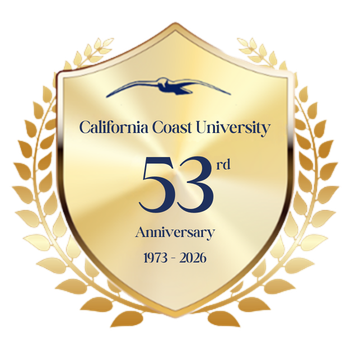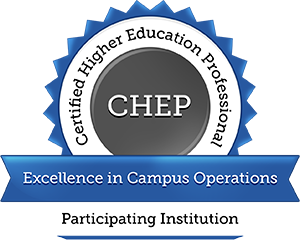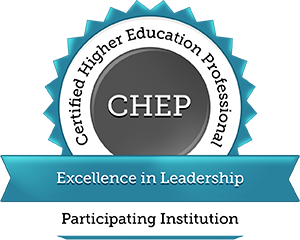|
BAM 105 |
Introduction to Business |
3 |
Introduction to Business introduces the business world and the contemporary environment in which it operates. How business operations are managed and organized will be explored and the basic ideas of marketing processes and consumer behavior will be discussed. Additionally, students will become aware of the changing face of business, with its current technological and management information system advances.
Course Objectives:
Upon successful completion of this course, students will be able to:
- Describe the types of ethical and social responsibility issues that affect the contemporary business environment.
- Explain how businesses, operations, and people are organized and managed.
- Demonstrate an understanding of the principles of marketing, including marketing processes, consumer behavior, customer relationships.
- Explain the financial issues facing business today, including money, banking, securities and investments.
- Demonstrate an understanding of the utilization of information technology within a business environment.
- Demonstrate proficiency with academic writing related to the introduction to business course content.
|
|
BAM 275 |
Interpersonal Communication |
3 |
Interpersonal Communication examines best practices for improving personal and professional effectiveness. For this, students will examine intrapersonal and interpersonal factors associated with success. This course will also help students develop the essential skills for self-management, working in teams, and leading groups and individuals within organizations.
Course Objectives:
Upon successful completion of this course, students will be able to:
- Examine the factors associated with successfully understanding the self – i.e. self-awareness, values and ethics, goalsetting, and self-management.
- Examine the factors associated with successfully understanding and working with others.
- Evaluate the key components for building and working in teams and facilitating team success.
- Evaluate best practices for leading individuals and groups.
- Demonstrate proficiency with academic writing related to interpersonal communication.
|
|
BAM 312 |
Business Communications |
3 |
Business Communications covers the fundamental dimensions of communication: language and behavior. Alternatives for conveying messages are discussed. The course also covers, in detail, the various channels and media for business communication, with guidelines for effective and successful use of each.
Course Objectives
Upon successful completion of this course, students will be able to:
- Describe the foundations of business communication and analyze why it is important.
- Demonstrate an understanding of the fundamentals of effective business communication and the writing process.
- Describe best practices in finding, evaluating, and processing information to effectively plan and write formal reports and proposals.
- Discuss how to develop and deliver effective business presentations with the use of slides and visual media.
- Assess the importance of writing employment messages, and describe best practices for interviewing for jobs.
- Demonstrate proficiency with academic writing related to business communications.
|
|
BAM 315 |
Principles of Management |
3 |
Principles of Management serves as an introduction to the discipline of management. It is designed to integrate the accepted theories in the area with real world applications to provide students with the basic knowledge and skills needed for managing others. This course begins with a discussion of the current issues in management and then proceeds to cover the traditional functions of management: planning, organizing, leading, and controlling. By the end of this course, students should have an understanding of the needs of modern public and private organizations, including emerging national and international trends.
Course Objectives
Upon successful completion of this course, students will be able to:
- Examine the role of managers in organizations, and identify the value of studying management.
- Describe managerial challenges and issues relating to ethics, diversity, and social responsibility.
- Demonstrate an understanding of management functions including planning and managing strategy.
- Examine organizational structure and human resources in relation to managing, organizing, and leading individuals and teams within the organization.
- Demonstrate proficiency with academic writing related to management.
|
|
BAM 385 |
Diversity and Inclusion in Organizations |
3 |
Diversity and Inclusion in Organizations provides students with a comprehensive and in-depth review of the factors related to these important issues. For this, the course will examine workplace, management, and psychological factors related to organizational, national, and global diversity, equity, and inclusion. In addition, students will explore best practices for managing a diverse and inclusive workforce in the global context.
Course Objectives:
Upon successful completion of this course, students will be able to:
- Analyze the global demographic trends, legislation, and policies on workforce diversity on a global scale.
- Demonstrate an understanding of the social psychological perspectives of workplace diversity.
- Examine best practices for managing a diverse workforce and creating an inclusive workplace.
- Examine how managing and engaging institutional diversity gives the organization a competitive edge.
- Demonstrate proficiency with academic writing related to diversity.
|
|
BAM 402 |
Public Relations |
3 |
This course examines public relations as a values-driven management function focused on building productive, ethical, and mutually beneficial relationships between organizations and their key publics. Students explore foundational theories, historical development, social responsibility, and the use of emerging technologies and social media in contemporary PR practice. This course also examines the dynamic growth of global communications and the challenges it poses for public relations.
Course Objectives
Upon successful completion of this course, students will be able to:
- Examine the theoretical foundations, key terms, and historical development of public relations.
- Analyze the ethical and social responsibility issues that shape public relations practice.
- Evaluate best practices for using social media and emerging technologies in public relations.
- Assess the challenges and opportunities involved in the globalization of public relations.
- Demonstrate proficiency with academic writing related to public relations.
|
|
BAM 411 |
Human Resource Management |
3 |
Human Resource Management explores the fundamentals of human resource management and its significance to a company’s success. Examined, in detail, are HR functions such as recruitment, retention, appraisal, compensation, labor relations, development, and current trends in the field. Practical skills-oriented concepts and techniques are highlighted throughout the course, as is the emphasis on building and maintaining an engaged and productive workforce.
Course Objectives
Upon successful completion of this course, students will be able to:
- Identify and define human resource management, and describe major trends and best practices related to the field.
- Demonstrate an understanding of staffing and training issues related to human resource management.
- Develop an understanding of compensation plans and total rewards.
- Recognize the importance of employee and labor relations, social responsibility, ethics, and risk management as they relate to the field.
- Identify the issues of managing human resources on a global scale.
- Demonstrate proficiency with academic writing related to human resource management.
|
|
BAM 475 |
Organizational Change |
3 |
Organizational Change addresses the reality facing both small and large organizations in today’s global economy — constant change. Whether change is caused by disruptive technologies or rapid social, economic, political and environmental changes that alter existing realities, this course provides prescriptive advice, “how-to-do-it lists,” as well as up-to-date theory regarding change management. This course captures the management experience with change in order to assist all those who must deal with change across a broad cross section of the workforce, not just senior executives or organization development specialists.
Course Objectives:
Upon successful completion of this course, students will be able to:
- Define organizational change and discuss the major theories, models, and processes of leading change in organizations.
- Examine the importance of building, energizing, and navigating change within an organization.
- Examine best practices for navigating organizational politics, culture, and relevant stakeholders.
- Discuss key factors that contribute to becoming a successful change agent including action planning and implementation.
- Evaluate organizational change processes based on research into current needs and future trends.
- Demonstrate proficiency with academic writing related to organizational change.
|
|
BCJ 100 |
Introduction to Criminal Justice |
3 |
Introduction to Criminal Justice aims to provide students with a general understanding of the criminal justice system’s response to crime in society. It is important to note that the general theme of this course involves the delicate balance between community interests and individual rights that criminal justice decision-making requires. This theme will be explored by examining the criminal justice process, focusing on how the system is structured to respond to crime.
Course Objectives
Upon successful completion of this course, students will be able to:
- Describe the nature and extent of crime and discuss the foundations of law and the criminal justice system.
- Examine law enforcement from the history of policing through to contemporary issues and challenges confronting the profession.
- Describe the role of the courts in the criminal justice system and the process of prosecution, criminal trial, and sentencing.
- Discuss the key aspects of corrections including its history, community and institutional corrections, prison life, and parole.
- Examine special issues in criminal justice related to juvenile justice, terrorism, human trafficking, hate crimes, and the #MeToo Movement.
- Demonstrate proficiency with academic writing related to criminal justice.
|
|
BCJ 210 |
Juvenile Justice |
3 |
Juvenile Justice explores the history of juvenile justice, the juvenile justice system, and special populations. It focuses on the system itself, the processes within it, and the young people who become involved in it. A historical view of the juvenile justice system and how it relates to the entire criminal justice system is also presented.
Course Objectives
Upon successful completion of this course, students will be able to:
- Identify and define the study of juvenile justice and discuss its history as well as the origins of juvenile court.
- Examine the various theories and research of juvenile crime and delinquency.
- Demonstrate an understanding of processes related to juvenile justice including intake and processing, prosecutorial decision making, classification and preliminary treatment, and adjudication.
- Discuss the practice of juvenile probation and juvenile corrections.
- Demonstrate proficiency with academic writing related to juvenile justice.
|
|
BCJ 240 |
Procedures in the Justice System |
3 |
Procedures in the Justice System is organized around the theme of balancing the need to detect, investigate, prosecute, and punish crime against the constitutional commitment protecting the rights and liberties of individuals. This course is designed to help students develop a working knowledge of the procedures involved in the justice system and covers the fundamental principles and procedures employed throughout the legal process. Topics include factors related to investigating crimes, considerations and practices related to the procedural and prosecutorial processes, and the trial, sentencing, and appellate processes.
Course Objectives
Upon successful completion of this course, students will be able to:
- Describe the criminal justice process and the sources of criminal procedure.
- Demonstrate an understanding of the factors and requirements related to searches and seizures.
- Examine practices related to interrogations, lineups, and identifications.
- Evaluate the different remedies for constitutional violations.
- Examine the pretrial and trial process, sentencing, and appeals.
- Demonstrate proficiency with academic writing related to procedures in the justice system.
|
|
BCJ 400 |
Theory and Practices of Law Enforcement |
3 |
Theory and Practices of Law Enforcement explores the historical background and development of the law enforcement field. This course examines the issues of ethical policing, critical thinking and problem solving, the impact of technology on law enforcement, and diversity. This course emphasizes important trends such as using police research and evidence-based policing to implement best practices in law enforcement.
Course Objectives
Upon successful completion of this course, students will be able to:
- Describe the foundations of policing in America including the history, challenges, and ethical issues.
- Examine best practices for police work in relation to recruitment, patrol, crime detection, and investigation.
- Demonstrate an understanding of the hazards of police work including health and safety issues, use of force, and misconduct and corruption.
- Evaluate the various types of police strategies and discuss future trends in American policing.
- Demonstrate proficiency with academic writing related to the theory and practice of law enforcement.
|
|
BCJ 360 |
Criminal Law |
3 |
Criminal Law provides students with an overview of how common law has shaped American criminal law and the role of the U.S. Constitution on criminal law. This course examines how the law is applied to factual scenarios including judicial opinions from contemporary events. Students will acquire knowledge of the various elements of crime, parties involved in crimes, and criminal defenses. Also covered in this course are crimes against people and crimes against the public and state.
Course Objectives
Upon successful completion of this course, students will be able to:
- Define and discuss criminal law, the origins of criminal law, and the role that the U.S. Constitution plays in criminal law.
- Demonstrate an understanding of the various elements of crimes, the parties involved, legal aspects, and types of crimes.
- Evaluate the key aspects of criminal liability and discuss the categories of defenses.
- Examine the various types of crimes committed against the person, homicide, crimes against property, and the public.
- Discuss the aspects of commercial and cybercrime, crimes that involve public good, and crimes against the people.
- Demonstrate proficiency with academic writing related to criminal law.
|
|
BCJ 403 |
Theory and Practices of Corrections |
3 |
Theory and Practices of Corrections provides students with an overview of our past and present corrections system, the evolving manner in which inmates have been treated, and the controversies that still remain in the corrections system today. By the end of this course, students should be more knowledgeable about the corrections system, its participants, and the differing perspectives of various members of society regarding the U.S. corrections system.
Course Objectives
Upon successful completion of this course, students will be able to:
- Define key terms and theories related to corrections and examine the importance of studying corrections.
- Demonstrate an understanding of correctional clients and correctional policies and operations.
- Examine issues related to prison life including management, staff, custody, and treatment programs.
- Analyze legal issues that affect corrections, and examine current challenges and future trends.
- Demonstrate proficiency with academic writing related to the theory and practices of corrections.
|
|
BCJ 450 |
Domestic Violence |
3 |
Domestic Violence serves as an introduction to the field of family and intimate partner violence. It focuses on the criminal justice perspective, bringing together the causes and consequences, along with an in-depth examination, of this type of violence.
Course Objectives
Upon successful completion of this course, students will be able to:
- Examine global domestic violence against women.
- Discuss the history of violence in the family and the value of research to understanding family violence.
- Examine the research on domestic violence including methods of research, theories, and perspectives.
- Demonstrate an understanding of the various types of abuse including children, adolescents, adults, LGBTI partners, and abuse in later life.
- Analyze the police and court response to intimate partner violence.
- Demonstrate proficiency with academic writing related to domestic violence.
|
|
MKT 425 |
Social Media Marketing |
3 |
Social Media Marketing explores the growing popularity of using digital technologies to reach consumers. This course aims to further students’ working knowledge on the four zones of social media (community, publishing, entertainment, and commerce). The course explores how social media can be employed to build brands, conduct business, support causes, rally the masses, and forge and maintain relationships.
Course Objectives
Upon successful completion of this course, students will be able to:
- Summarize the process of social media marketing strategies, and describe key concepts related to this process.
- Examine social media consumers and the dynamics of online communities.
- Analyze the four zones of social media including social community, publishing, entertainment, and commerce.
- Examine social media data management and measurement.
- Demonstrate proficiency with academic writing related to social media marketing.
|
|
PSY 102 |
Introduction to Psychology |
3 |
Introduction to Psychology introduces the methods and findings of contemporary psychology and investigates how psychological science can be applied to the world around us. Emphasizing the need for scientific and critical thinking, topics include a survey of biology and behavior, sensory processes, human development, learning and motivation. Emotion, personality, psychological disorders, therapy, and social interaction are also examined to provide students with a solid understanding of the facts, principles, and theories which make up the field of psychology.
Course Objectives
Upon successful completion of this course, students will be able to:
- Discuss the historical foundations of the field of psychology, the function of the brain on behavior, stages of human development, and psychology as a scientific field of study.
- Demonstrate an understanding of processes related sensation and perception, states of consciousness, conditioning and learning, memory, cognition, language, and intelligence.
- Examine motivation and emotion, sexuality and gender development, and personality development.
- Evaluate psychological disorders and psychotherapies.
- Examine key concepts related to the fields of health psychology and applied psychology.
- Demonstrate proficiency with academic writing related to the field of psychology.
|
|
PSY 116 |
Psychology of Gender |
3 |
Psychology of Gender examines the biological, cultural, and historical factors that influence the development of gender roles and identities. Stereotypes of masculinity and femininity are examined, and the impact that these ideas have on our lives at the personal, social, and institutional levels are explored.
Course Objectives
Upon successful completion of this course, students will be able to:
- Define sex, gender and gender identity, and discuss how gender movements have shaped history.
- Examine biological, social, cognitive, emotional, and communicative factors related to gender development.
- Evaluate issues related to gender stereotyping, discrimination, and power.
- Describe the factors related to gender that affect health and wellbeing.
- Demonstrate proficiency with academic writing related to the psychology of gender.
|
|
PSY 150 |
Health Psychology |
3 |
Health Psychology examines the correlation between health, illness, and optimal health care from a behavioral science approach. The relationship between health and behavior is explored through an integration of foundational theories, relevant research, and “real-world profiles.”
Course Objectives
Upon successful completion of this course, students will be able to:
- Describe and discuss the meaning and foundations of health psychology including the psychological and ethical aspects related to the field.
- Analyze issues in behavioral health including the affects and impact of drugs and alcohol, eating, and exercise.
- Describe the relationship between behavioral factors and strategies related to chronic disease, stress, pain, and illness.
- Examine future trends and challenges in health psychology.
- Demonstrate proficiency with academic writing related to health psychology.
|
|
PSY 228 |
Social Psychology |
3 |
Social Psychology offers students an in-depth look at how people come to understand themselves and others in a social context, with considerable emphasis on society’s role in social psychology. Each chapter in this course will introduce students to key individuals within the realm of social psychology whose research has made a significant contribution to the field.
Course Objectives
Upon successful completion of this course, students will be able to:
- Define the field of social psychology and describe its foundations, key terms, and theories.
- Examine theoretical perspectives related to social psychology and research methodologies.
- Evaluate the individual in society including stratification, self and identity, and socialization over the life course.
- Analyze the various areas of social life.
- Demonstrate proficiency with academic writing related to social psychology.
|
.png)










.jpg)






